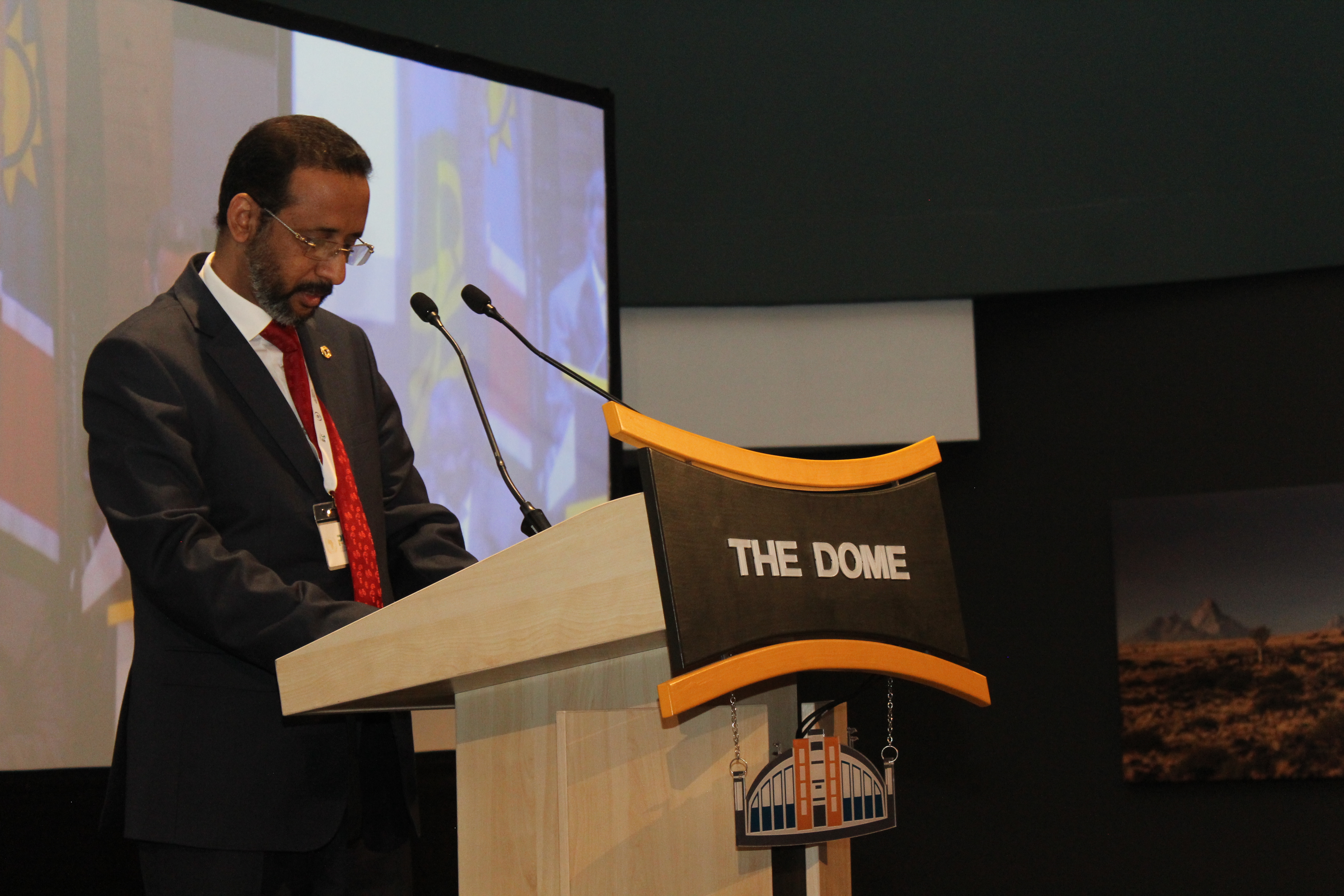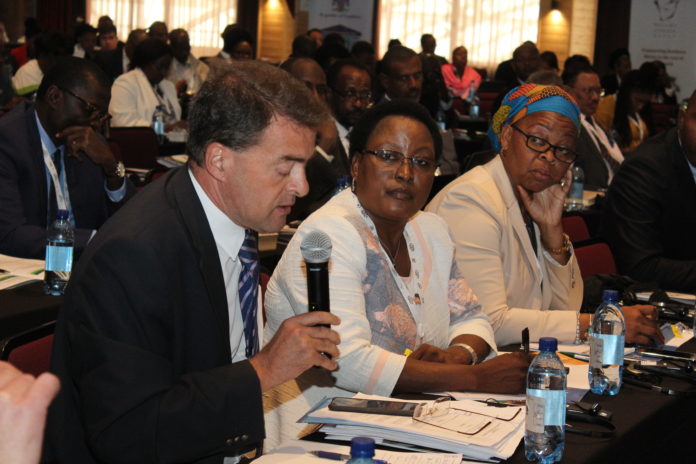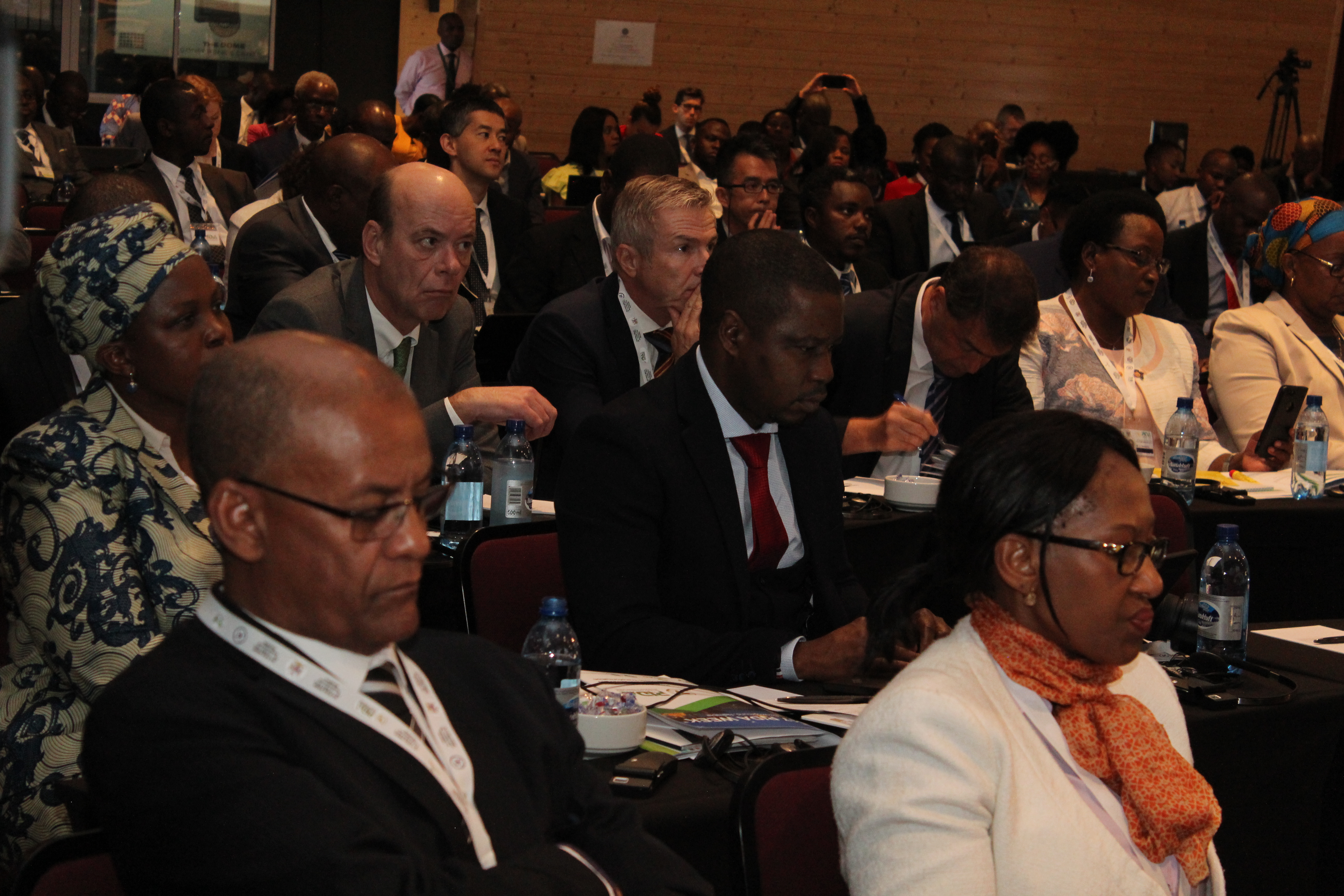Gabrielle Nina Mitch
A regional Infrastructure Development forum recently pointed out the significant role of regional and continental infrastructure in facilitating trade and economic transformation in Africa.
Regional Infrastructure Development Job Creation and Economic Transformation which was the theme of the PIDA Week 2017 (Programme for Infrastructure Development in Africa) held over a three-day period in parallel and plenary sessions discussing and reaffirming Organized by the African Union Commission (AUC), the NEPAD Planning and Coordinating Agency (NPCA), the African Development Bank (AfDB) and the United Nations Economic Commission for Africa (UNECA) in collaboration with the Namibian Government and the Southern African Development Community (SADC).
According to the African Union Commission Energy and Infrastructure manager Cheikh Beeda, PIDA has in total 433 PIDA PAP projects in the sectors of energy, transport, water and information and communication technology, whose 46 are at Concept, 40 are at Prefeasibility, 30 are at Feasibility, 30 are at Detailing Structuring, 18 are at financing, 19 are at Tendering, 83 are at Construction and 50 are in operation. The African Development Bank acknowledged that even though the cost of PIDA projects is very high, the cost of not implementing PIDA projects bears higher impacts to the sustainable development of the continent. It is imperative to analysis the “cost of inaction“, its impacts in the future economic growth of Africa.
Abidjan-Lagos Corridor to boost the economy growth in East Africa
The Abidjan-Lagos corridor is an important socio-economic link in the ECOWAS region of the trans-African road and motorway program, supported by African Union’s Continental Program for Infrastructure Development in Africa (PIDA). It’s one of its priority project
In recent years, considerable investment has been made in road construction or rehabilitation works on several sections of each corridor country and in trade and transport facilitation projects. The five corridor states with the support of several donors and stakeholders have been engaged in these achievements.
The Abidjan-Lagos corridor should make a decisive contribution to meeting the socio-economic needs of a road population that complies with international standards.
The success of this corridor widely depends on the corridor states and stakeholders full commitment for implementation. Furthermore the strong political and technical support of ECOWAS and the African Union through the NEPAD agency and the technical and financial partners, will undoubtedly contribute to transform all commitments in an effective implementation for the benefit of all Africans.
“Through the PIDA Service Delivery Mechanism (SDM), we worked with ECOWAS to institutionally and legally design the set-up of a supranational project management authority for the Abidjan-Lagos Corridor – a road corridor which transports more than 75% of all traded goods in West Africa. The Ministers of the five project states – Benin, Cote d’Ivoire, Ghana, Nigeria and Togo – adopted the legal and institutional set-up of the Abidjan Lagos Corridor Management Authority (ALCoMA) and the African Development Bank committed initial funding to ALCoMA. With its supranational mandates, ALCoMA will be the first of its kind on the continent. It will manage and coordinate the entire project cycle.” The chief executive officer of NEPAD agency DR Ibrahim Mayaki says
“Africa’s development will be shaped by infrastructure corridors” Mayaki concluded
On his part Cheikh Bedda emphasized that the Abidjan Lagos Corridor is expected to boost trade of goods and performance of other Sectors such as, Tourism, Mining and Agriculture, in West Africa.

Kinshasa-Brazaville Road and Rail Bridge
Among other 2017 PIDA PIDA project on the agenda, Kinshasa-Brazaville Road and Railway Bridge was also highlighted in a plenary session.
The bridge will be 1,575m in length, and will include a single railway track, two road lanes (one in each direction) as well as two sidewalks. There will be the possibility to extend the road to four lanes if future demand justifies such an extension. According to the Feasibility Study, the rail road bridge will be designed to be easily maintained and operated, and a single border checkpoint will be located at each end of the bridge. To connect the bridge to existing road infrastructure (as illustrated in the figure below), there will be a road extension of 6.8km in the DRC, and 3.2km in the RC (totaling 10km of road connections).
The Project is currently being supported by the African Legal Support Facility. This facility, hosted by the African Development Bank, has been providing legal advice and technical assistance to African countries since 2010 and is providing advice in respect of the optimal PPP structure.
Air Transport Facilitation projects and Single African Air Transport Market
“Africa is set to be one of the fastest growing aviation regions over the next 20 years. This opens up incredible economics opportunities for the continent’s 55 nations,” said Bedda during a session meeting dedicated to Air Transport Facilitation projects one of the PIDA priority projects.
Dr Mayaki NEPAD CEO on his part asserted that, 80 % of air traffic in Africa is carried by non-African airlines; most notable while the continent constitutes over 17 % of World Population, African airlines carry less than 3 % of the global air traffic, it is therefore important to increase effort for a global market
“The realisation of the Single African Air Transport Market will be dependent on progressive policy and regulatory reforms that will stimulate growth in Africa’s aviation industry. The Single African Air Transport Market will enhance intra-regional air connectivity and address the current constraints of regional air transport access. Opening up air transport markets will lead to quick increase in flight routes which will spur more opportunities for cross-border investments in the production and service industries; including tourism and intra-Africa trade.”Doctor Mayaki stated
According to David Nyusenga, representative of the east African community at the PIDA week commemoration in Swakopmund Namibia, the international civil aviation authority, development partners and 54 African countries last month adopted the declaration and plan of action for aviation infrastructure development in Africa. The Abuja declaration is the problem solver and will provide practical solutions to addressing the problem of aviation infrastructure development in Africa, he concluded Nysenga
Job creation for the growing African young population
Africa has the fastest growing demographics in the world. This could be an asset for change, progress and dynamism. If Africa is going to achieve the desired economic growth envisioned by the AU Agenda 2063, it will have to provide employment opportunities for its growing young population, Cheikh Bedda said.
Today’s generation of young people in Africa is the largest the world has ever known. About half of Africa’s population of 1.1 billion is under the age of 25. Failure to effectively deal with deepening unemployment among Africa’s growing youth population could seriously erode the economic gains achieved across the continent in recent years.
“The challenge of creating enough jobs and opportunities for the large African youth population entering the labour market is one of the major challenges our continent faces.” Beeda concluded.















